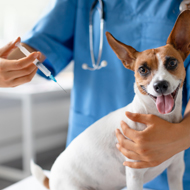Charities criticise use of Scottish fold cat in movie
More than ten charities have signed a letter to Universal Pictures about the film.
Animal welfare charities have come together to criticise the use of a Scottish fold cat in the soon-to-be-released movie Argylle.
The charities have written to Universal Pictures, who will be distributing the film alongside Apple TV+, to share their concerns that the cat’s role in the film may cause a surge in the popularity in Scottish folds, despite the health problems associated with the breed.
Scottish folds are named after the distinctive fold in their ears caused by a cartilage abnormality. The same abnormality also causes them to develop arthritis.
The letter has been signed by Cats Protection, BSAVA, International Cat Care, PDSA, Battersea, Woodgreen, Blue Cross, RSPCA, Animal Behaviour and Training Council, Governing Council of the Cat Fancy, and the Pet Industry Federation.
Alison Richards, Cats Protection’s head of clinical services, said: “The impact of using this breed in a Hollywood film cannot be overstated.
“All Scottish fold cats suffer from variable degrees of painful degenerative joint disease and the underlying genetic defect has far-reaching and severe consequences for their health. They go on to develop painful arthritis and it develops it so reliably that it’s being used as a model to study the gene involved in human arthritis.
“They’re already very popular on social media and with celebrities so we really worry that this film will cause this to surge even more.”
The charities have also criticised the way the trailer for the film depicts the cat travelling in a backpack and being roughly handled.
Sarah Ellis, head of cat mental wellbeing and behaviour at International Cat Care, said: “Scruffing a cat is an unacceptable form of restraint that can cause a cat considerable discomfort, fear and even pain, as the weight of its body is completely unsupported, and the cat cannot escape the pressure from its skin being grasped.
“Backpacks are not a cat friendly way to transport a cat; they can leave a cat cramped, without enough ventilation, struggling to control body temperature, and uncomfortable due to the unpredictable movement from being worn on a person’s back. Backpacks are simply not cat friendly - they do not respect the cat as a species and run the risk of psychological and physical suffering to the cat.”
Universal Pictures have been approached for comment.
Image © Shutterstock



 RUMA CA&E has extended the deadline for its online survey into vaccine availability.
RUMA CA&E has extended the deadline for its online survey into vaccine availability.